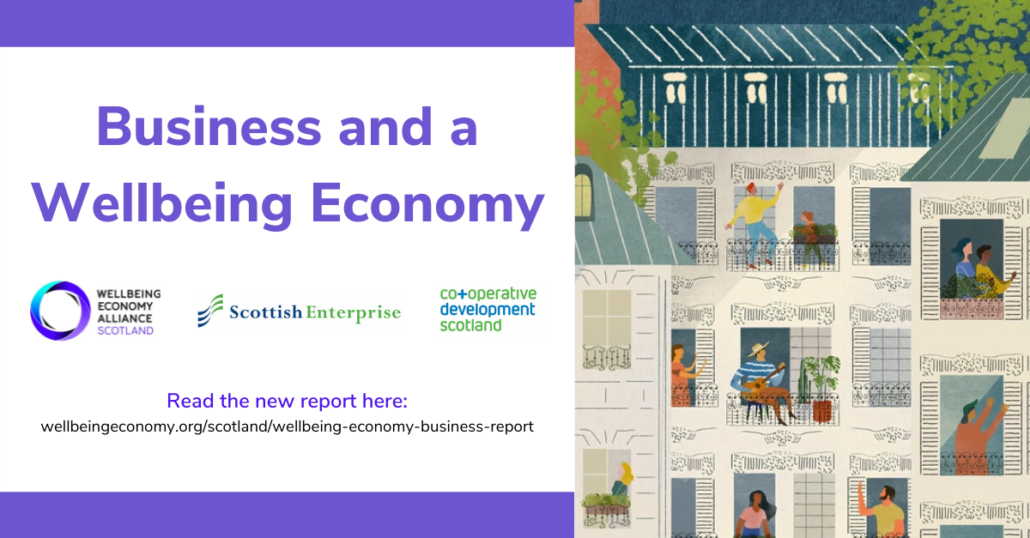Today, we’re publishing our latest report, “Business and a Wellbeing Economy: Creating Thriving Businesses and a Thriving Scotland”, in partnership with Scottish Enterprise and Co-operative Development Scotland.
Keep reading to see what Jimmy Paul, Director of WEAll Scotland, had to say about this report, business’s role in a wellbeing economy, and the exciting opportunities ahead of Scotland:
“The Wellbeing Economy Alliance (WEAll) was created from a belief in the power of collaboration. This report gave WEAll Scotland the opportunity to work with Co-operative Development Scotland (CDS), the arm of Scottish Enterprise that supports employee ownership and co-operative business models. CDS believes these inclusive business models are a fairer, stronger and more democratic way of doing business that helps create a wellbeing economy.
“My biggest drive, both personally and professionally, is to see a world where all people flourish. The Wellbeing Economy Alliance works alongside a beautifully diverse group of organisations to ensure people are at the forefront of change. This is what attracted me to apply for the role of director of WEAll Scotland, earlier this year.
“As I settle into this new role, I look forward to meeting bold businesses who are making strides to realise social justice on a healthy planet. Businesses play a vital role in building a thriving Scotland: a Scotland where all people flourish and which cherishes our natural home.
“The assumptions upon which our current economic system rests no longer hold true. Economic growth cannot be assumed to automatically deliver a decent standard of living for enough people. With scientists warning of the sixth mass extinction and catastrophic climate change, 20th century systems of production and consumption need to be transformed, and we must be impatient for change.
“In the past, greed at an individual level was the predominant motivator shaping economic policies. However, the way communities across Scotland responded to Covid-19 is one of many recent examples of societal cooperation, empathy, and solidarity.
“Back in 1942, William Beveridge wrote that ‘A revolutionary moment in the world’s history is time for revolutions, not for patching’. Covid-19 has clearly presented us with a revolutionary moment. The question is, will we harness it to work together and build an economy that better meets the needs of people and planet than the one we had going into the pandemic? We hope that this partnership will be the first of many more.”

the discussion?
Let us know what
you would like
to write about!
